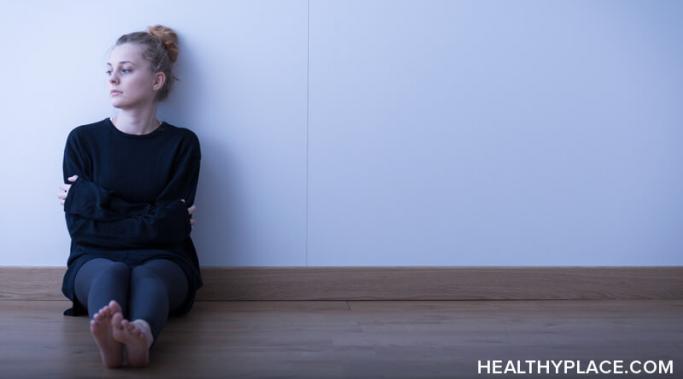Blogs
Coping with unintentional mental health stigma is an important skill to have. The reason for that is even people with the best intentions can stigmatize mental health with their words or actions. Although they might now mean any harm, there's still the potential for harm, and having the tools to cope with those situations is useful.
Accepting responsibility for past mistakes in relationships can be tricky when you live with a mental illness like borderline personality disorder (BPD). Because of my tendency for black and white thinking, I spent a lot of time refusing to own up to my part in relationship failures.
Being a role model is already difficult enough, but when you're trying to set a good example for your younger siblings when you're depressed, it can seem impossible. Though it wasn't easy, I fought the depression at every turn and was able to come out of the situation satisfied that I left a good example for my little brother and sister. Despite the depression, I chose to be there for my family when they needed me, and now you can too -- here's how.
Depression and burnout are two distinct conditions. Even though depression and burnout have many common symptoms, they are not one and the same. That said, I believe having depression makes one more prone to burnout. This is why.
I've found that sometimes I need to trick my mind into changing my beliefs. While there are endless ways to do this, one, in particular, has worked well for me. Incorporating affirmations into my daily life has helped change my beliefs more habitually. And when you alter your beliefs, especially when it comes to what you think about yourself, life gets a whole lot better.
Have you tried (and maybe failed) to get your health boundaries respect in the past? If so, you know how tricky it can be. In my last post, I talked about setting health and mental health boundaries. I acknowledged their importance, particularly now, in the midst of a pandemic. Today, I want to talk about how to communicate with others such that they respect your health boundaries.
Learning to eat healthily is an important part of eating disorder recovery; however, when it comes to celebrating special occasions, like Christmas, I steer clear of healthy holiday baking. The reason is simple: learning to have a good relationship with food means not vilifying it, even if it has little nutritional value.
The holiday season is a complicated time of year, one that tends to bring out both the best and worst in us. For some, it is simply a time to celebrate and give thanks, but when you're stuck in the shadow of self-harm with depression, lights strung on trees might not seem bright enough to outshine the darkness of long, cold, winter nights.
This Thanksgiving, I decided to let myself eat whatever I wanted, a treat for successfully sustaining my weight while on schizoaffective disorder medications.
If you'd like to beat anxiety, I offer you a hearty welcome to the club. As a long-term member and someone who has been able to overcome the grip that anxiety used to have on me, I have food for thought: Shift your focus away from beating anxiety. Notice that I didn't say I've overcome anxiety but, instead, the grip it had on me. Anxiety is part of the human experience, and it does have a place in our lives. It does not, however, deserve to be the center of our thoughts, feelings, and actions. To break free from the grip anxiety has on you, think less about anxiety, and focus on what you need instead.









